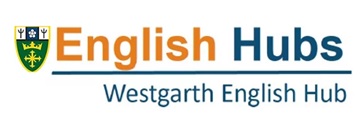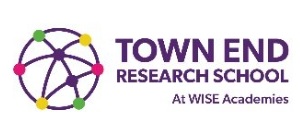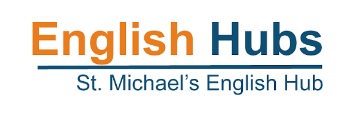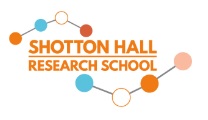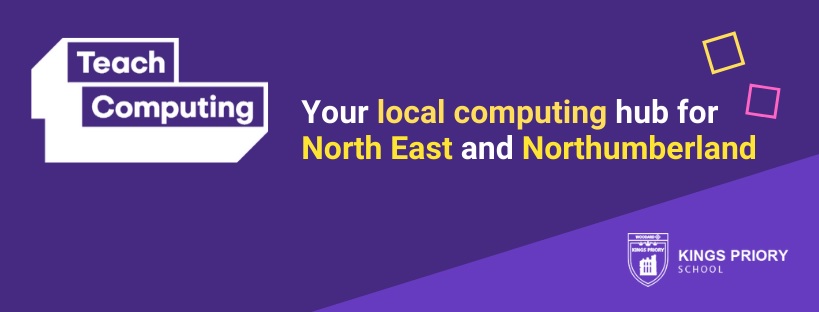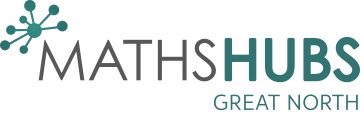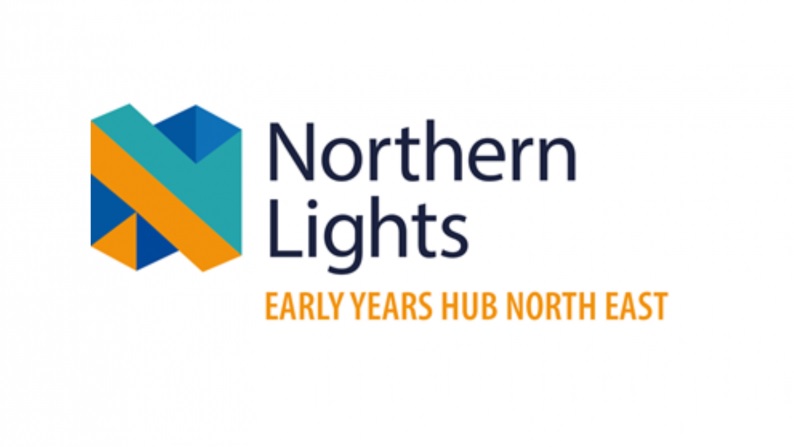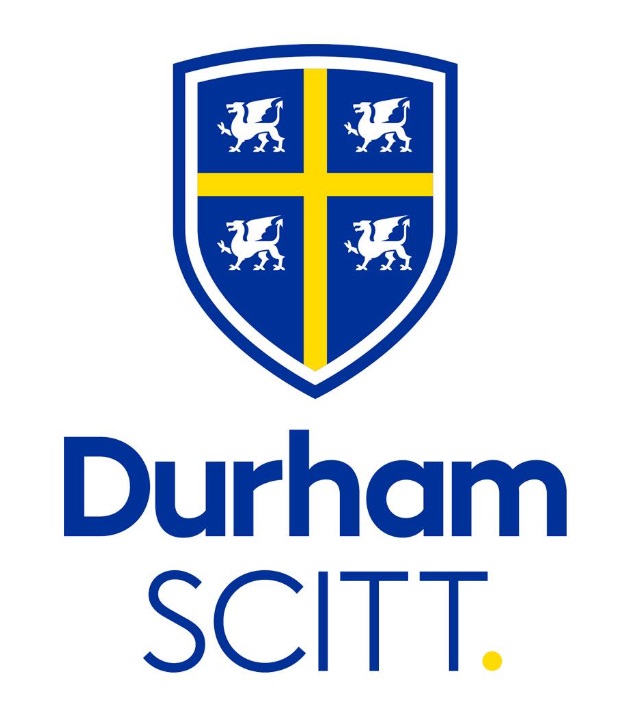
As a Teaching School Hub we work very closely and collaboratively with the Curriculum Hubs and Research Schools for our region. Details of the curriculum hubs and research schools for our region can be found below:
Newcastle Research School
https://researchschool.org.uk/newcastle
Newcastle Research School is part of NEAT Academy Trust which is based in the North East. The trust has four primary schools – Central Walker CE Primary School, Tyneview Primary School, Walkergate Community School, West Walker Primary School and two secondary schools – Benfield School and St Hild’s Church of England School.
The Research School is based at Walkergate Community School.
As a Research School their core purpose is to:
- share and disseminate the very best of evidence-based practice to schools and teachers across Tyne and Wear and Northumberland.
- provide evidence-based training
- host conferences and events to support the teachers in our region
- support schools

Town End Associate Research School
https://researchschool.org.uk/shottonhall/about-us/town-end-associate-research-school
Town End Associate Research School and Town End Teaching School Alliance are based at Town End Academy which is part of WISE Academies – a multi-academy trust of 12 schools that spans Sunderland, Newcastle and Northumberland. They are committed to providing a quality education to all pupils, based on the best available evidence
As an Associate Research School their core purpose is to:
- translate the most up-to-date research in order to make it accessible, practical and applicable in the classroom
- provide evidence-based training and CPD for senior leaders, teachers and teaching assistants on how to improve classroom practice
- support the implementation of evidence-based practice by collaborating with schools and other partners
They work closely with Shotton Hall Research School, the Education Endowment Foundation (EEF), other schools and higher education institutions to support our aim of developing an evidence-informed community of schools and professionals.
For more information contact them on: info@townendtsa.co.uk
Shotton Hall Research School
Shotton Hall Research School works to break down barriers between teachers and academics by developing a programme of support and events for north east schools. These include a range of training programmes designed to make research more accessible for teachers and bringing evidence-based concepts and principles to life for use in the classroom.
Visit our Research School website here to find out everything you need to know.
Great North Maths Hub
https://greatnorthmathshub.co.uk/
As a hub, they collaborate with a wide range of enthusiastic and dedicated maths professionals and strategic partners, working together to offer a wide range of high quality, fully funded and sustainable professional development programmes for maths teachers and teaching assistants.
Their aim is to develop and spread excellent practice, inspiring a passion for mathematics, in both students and teachers.
The benefits for schools and colleges engaging with a Maths Hub include:
- Access to free professional development programmes
- Up-to-date information about all local maths education activities
- Participation in a network of local leaders of maths education (LLMEs).
Schools and teachers can choose from several types of programme, each with a focus on collaborative, evidence-based professional development. The programmes offer schools and teachers in all phases the chance to engage in CPD with colleagues from other schools over an extended period, and are led by a locally based experts.
Cardinal Hume Computing Hub
https://www.cardinalhumecomputinghub.com/
Cardinal Hume Catholic School – our Computing Hub offers primary and secondary computing training and support for primary and secondary schools in the North East and Cumbria through the National Centre for Computing Education (NCCE).
The NCCE was set up in November 2018 by the Department for Education to increase pupil update and attainment in computer science and ensure that there is a strong pipeline of digital skills in England.
Cardinal Hume Catholic School is one of the 40 National Centre for Computing Education (NCCE) Computing Hubs across England. Each hub provided computing training for schools in their allocated regions. Our regions are Durham, Newcastle, Gateshead and Cumbria.
Our primary and secondary CPD pages outlines a number of offerings available to schools in the North East and North West from Cardinal Hume Catholic School. If you would like any further information on these offers or if you would like a representative to attend a meeting to introduce the NCCE programme please contact us at teachcomputing@chs.bwcet.com
Computing at School
https://community.computingatschool.org.uk/events
Every child in every school has the right to a world-class computing education.
An understanding of computing enables citizens to make informed choices in our digital world. To get to that point, we need to encourage and equip school staff. The CAS community of teachers, academics and industry professionals provides access to a range of resources and local events supporting continuing professional development. Membership is open to all adults except students in Further Education taking school-level qualifications.
Being part of CAS means getting involved fully – giving as well as taking.
CAS’s mission is to lead and promote excellence in all those staff involved in Computing education in schools. Our aim is for computing – with Computer Science at its heart – to become firmly established in all Primary and Secondary schools alongside maths and the natural sciences. CAS speaks for the discipline of computing at school level – including Further Education – but not for any particular interest group.
Computing at School supports the National Centre for Computing Education
The National Centre for Computing Education exists to support teachers at every stage, from primary to A level, to improve computing skills and subject knowledge. It does this through certified CPD, resources and local meet-ups, through the CAS Communities of Practice.
The National Centre for Computing Education is a funded programme by the Department for Education in England. It is led by a consortium of STEM Learning, BCS, The Chartered Institute for IT and the Raspberry Pi Foundation. Visit www.teachcomputing.org for more information.
St. Michael’s English Hub
https://www.stmichaelsprimary.durham.sch.uk/english-hub/
St. Michael’s English Hub is one of only 34 schools across England appointed by the DfE to take a leading role in supporting schools to improve the teaching of early language, reading and phonics. The school places a high profile on early reading through a strong commitment to systematic, synthetic phonics. Ultimately, if a child can read, they can access the curriculum, develop a strong vocabulary and a love of reading.
Westgarth Primary School English Hub
https://www.westgarthprimaryschool.co.uk/westgarth-english-hub/
The 34 English Hubs were selected for their expertise in teaching reading and to support schools in their surrounding area. English Hubs promote a love of reading and help schools to provide excellent teaching in phonics and early language. They focus on supporting the slowest progress children in Reception and Year 1 and ensure every child is successful, regardless of background, needs or abilities.
The programme is open to all schools, academies and free schools with pupils in: reception – early years foundation stage (EYFS) and Year 1 – first year of key stage 1 (KS1)
Science Learning Partnerships
Awaiting information
Throckley Behaviour Hub
https://www.throckleyprim.newcastle.sch.uk/national-support-school/
The Department for Education (DfE) is funding a 3-year programme to improve pupil behaviour.
The programme pairs schools and MATs with exemplary behaviour practices, called lead schools or MATs, with partner schools or MATs who want and need to improve pupil behaviour.
The programme is flexible with a tailored offer of support depending on partner schools’ circumstances but all partner schools can expect to get support with:
- diagnosing specific areas of improvement
- designing and developing new approaches to addressing poor behaviour
- developing clear, sustainable behaviour cultures for all pupils
The programme is based on creating a culture: how school leaders can optimise behaviour. Good behaviour, routines and structures in schools support all pupils’ engagement in education, and their mental health and wellbeing. Schools will work together to apply these principles to the individual context of the school.
Download the behaviour hubs programme brochure for an overview of support available.
Register for updates
If you would like to receive updates, news and information from Northern Lights Teaching School Hub direct to your inbox, you can register for our newsletter below.
Get in touch
If you have an enquiry, please get in touch with us via email tshinfo@nllt.co.uk or by phone, or fill in the form below.
Hub Partners
Cookie Policy
This website uses cookies, or tiny pieces of information stored on your computer, to verify who you are when you are logged in to the administration area.
Types of cookies we use
We use the following types of cookies:
- strictly necessary cookies – these are essential in to enable you to move around the websites and use their features. Without these cookies the services you have asked for, such as registering for an account, cannot be provided.
- functionality cookies – these cookies allow the website to remember choices you make and provide more personal features. For instance, a functional cookie can be used to remember the volume level you prefer to use when watching videos on our websites. The information these cookies collect may be anonymised and they cannot track your browsing activity on other websites.
First Party Cookies
| Provider | Cookie name | Purpose | Further information |
| Website | ir_test | This tests whether the device is suppressing cookies | |
| Website | cke | This cookie is used to remember whether you wish to view the cookie notice or not. | |
| Google Analytics | _ga _gat_gat_oxRollUpTracker_gat_UA-***** | These cookies are used to collect information about how visitors use our site. We use the information to compile reports and to help us improve the website. The cookies collect information in an anonymous form, including the number of visitors to the website, where visitors have come to the site from and the pages they visited. | Overview of Google Analytics privacy |
E-Commerce Cookies
Cookies are used by WooCommerce in a variety of ways.
Cookies depend on specific features that are enabled on a store. The cookies are active when a user interacts with one of these features or to allow admin functions to be performed from within the store’s dashboard (/wp-admin).
Details are provided in tables below, listing various cookies that are set for users of stores with the WooCommerce plugin installed.
Store front end:
| COOKIE NAME | DURATION | PURPOSE |
|---|---|---|
woocommerce_cart_hash | session | Helps WooCommerce determine when cart contents/data changes. |
woocommerce_items_in_cart | session | Helps WooCommerce determine when cart contents/data changes. |
wp_woocommerce_session_ | 2 days | Contains a unique code for each customer so that it knows where to find the cart data in the database for each customer. |
woocommerce_recently_viewed | session | Powers the Recent Viewed Products widget. |
store_notice[notice id] | session | Allows customers to dismiss the Store Notice. |
No personal information is stored within these cookies.
Store dashboard (/wp-admin):
| COOKIE NAME | DURATION | PURPOSE |
|---|---|---|
woocommerce_snooze_suggestions__[suggestion] | 2 days | Allows dashboard users to dismiss Marketplace suggestions, if enabled. |
woocommerce_dismissed_suggestions__[context] | 1 month | Count of suggestion dismissals, if enabled. |
tk_ai | session | Stores a randomly-generated anonymous ID. This is only used within the dashboard (/wp-admin) area and is used for usage tracking, if enabled. |
Web Application Firewall Cookies
wfwaf-authcookie-(hash)
What it does: This cookie is used by the Wordfence firewall to perform a capability check of the current user before WordPress has been loaded.
Who gets this cookie: This is only set for users that are able to log into WordPress.
How this cookie helps: This cookie allows the Wordfence firewall to detect logged in users and allow them increased access. It also allows Wordfence to detect non-logged in users and restrict their access to secure areas. The cookie also lets the firewall know what level of access a visitor has to help the firewall make smart decisions about who to allow and who to block.
wf_loginalerted_(hash)
What it does: This cookie is used to notify the Wordfence admin when an administrator logs in from a new device or location.
Who gets this cookie: This is only set for administrators.
How this cookie helps: This cookie helps site owners know whether there has been an admin login from a new device or location.
wfCBLBypass
What it does: Wordfence offers a feature for a site visitor to bypass country blocking by accessing a hidden URL. This cookie helps track who should be allowed to bypass country blocking.
Who gets this cookie: When a hidden URL defined by the site admin is visited, this cookie is set to verify the user can access the site from a country restricted through country blocking. This will be set for anyone who knows the URL that allows bypass of standard country blocking. This cookie is not set for anyone who does not know the hidden URL to bypass country blocking.
How this cookie helps: This cookie gives site owners a way to allow certain users from blocked countries, even though their country has been blocked.
Third Party Cookies
To enrich our website content, sometimes we may embed video content from other social media websites such as YouTube or Facebook. As a result, when you visit a page with content embedded, you may be presented with cookies from these websites. This website has no control or liability over these cookies set, so you should check the relevant third party’s cookie policy for more information.
We also offer a ‘share page’ widget on some of our web pages, where content can be shared easily on the following sites – Facebook, Twitter, MySpace, Delicious and Digg. These sites may set a cookie when you are logged into their service. This website has no control or liability over these cookies set, so you should check the relevant third party’s cookie policy for more information.
Some links and resources are provided below to assist your understanding of the types of cookies you may encounter.
| Provider | Cookie name | Purpose | Further information |
| Google maps | NID PREF khcookie | These cookies are used by Google to track how many people are using their maps | Overview of Google privacy |
| YouTube | use_hitbox VISITOR_INFO1_LIVE | YouTube may still set cookies on the user’s computer once the visitor clicks on the YouTube video player, but YouTube will not store personally-identifiable cookie information for playbacks of embedded videos using the privacy-enhanced mode. | Google Technology |
| lang pidmetrics_token | We have the Twitter Share widget in place on the site which makes use of cookies. May include targeted advertising cookies. | Twitter Privacy Policy Twitter Articles | |
| PREF NID | Cookies related to Google. May include targeted advertising cookies used on our social media hub. | Google Cookies Google Types | |
| _bizo_bzid _bizo_cksm _bizo_np_stats | Targeted advertising cookies from LinkedIn. | LinkedIn Cookie Policies | |
| CloudFlare | _cfduid | Identifies a single machine as safe to connect behind a shared IP so challenges do not have to be reissued. | Cloudflare Cookie Policy |
Cookies
This website will not use cookies to collect personally identifiable information about you. However, should you choose to disable, reject or block our cookies, some parts of our website will not function fully, or in some cases, our website will not be accessible at all.
Most web browsers allow some control of most cookies through the browser settings. To find out more about cookies, including how to see what cookies have been set and how to manage and delete them please visit http://www.allaboutcookies.org/.
WordPress
For detailed information on the use of cookies within the WordPress ecosystem please visit https://codex.wordpress.org/WordPress_Cookies
Changes to our Cookie Statement
Any changes we may make to our Cookie Statement in the future will be posted on this page.
Last Updated: 12/02/21
Privacy Policy
We regard your privacy as important and any personal information you give to us will be used in accordance with the Data Protection Act and the General Data Protection Regulations.
We do not store personal information about individuals who visit this site except where they provide contact information via our contact us page and contact forms available on various pages throughout the website.
Any information you provide will only be used for the reasons specified and it will not be shared with any third party without your consent, unless required by law.
Your contact details are kept securely and are only accessed by authorised members of staff as part of the provision of school services. If you do not wish us to keep this contact information please tell us.
This website uses Google Analytics which provides statistical data about the usage of the site. This information is not used to identify individuals, but is collected to provide us with an understanding of the areas of interest on our site and how our site is being used.
If you are connected to the internet you will have an IP Address. This may take the form of a figure, such as 333.333.22.1. The address will be automatically collected and logged as part of the connection of your computer to our web server and may be used to determine the total number of visits to each part of the site. This data is not collected and used for other purposes.
This website contains links to other websites. The School is not responsible for the privacy practices of other sites or organisations and recommends you consult the privacy information on those sites.
This policy will be reviewed and updated versions will be posted on the website.
If you have any questions about the use of your personal information, the Information Commissioner is the independent regulator for both Data Protection and Freedom of Information.





